Feeding your newborn is one of the first skills you learn when you become a new parent. It can feel intimidating at first, but you’ll quickly get the hang of it. You also have a decision to make around breastfeeding or bottle-feeding.
To help you understand what your options are, here we’ll run through everything you need to know about feeding a newborn. We’ll also answer the most common questions about feeding your baby in the first few weeks of life.
Should I breastfeed or bottle-feed?
This is a big topic, but we’ll keep it concise. When it comes to feeding your newborn baby, you’ve got four main options:
- Breastfeeding
- Bottle-feeding with formula milk
- Bottle-feeding with breast milk
- Combination feeding
Each has its own benefits and drawbacks. Which option you choose will depend upon your circumstances and preferences. Let’s look at each in a little more detail.
Breastfeeding: Breast milk contains antibodies and other disease-fighting substances made by a mother’s body. It gives a baby an immediate boost to their immune system and can have other long-term benefits too. Breastmilk is usually the easiest milk for babies to digest as well.
Some mothers find breastfeeding rewarding, but others find it painful, time-consuming or inconvenient. Others may choose not to breastfeed for other reasons.
Bottle-feeding with formula milk: Formula milk is a healthy and nutritious alternative to breast milk.
Bottle-feeding with formula milk can be more convenient for some parents. It’s typically less time-consuming and allows the father and other family members to become involved in feeding too. Some parents find bottle-feeding arduous, however, as formula milk must be prepared in a particular way and bottles have to be kept clean. Plus, formula milk can be expensive.
Bottle-feeding with breast milk: You can express breast milk using a breast pump, that you can then store in the fridge and feed to your baby using a bottle.
If you don’t want to breastfeed, this is a good alternative as it means your baby still gets the health boost from breast milk. Bottle feeding with breast milk can be time-consuming, however, as expressing breast milk can take a while. But electric breast pumps do make the process easier and quicker.
Combination feeding: This is a mixture of the above, involving two or more of breastfeeding, formula feeding or bottle-feeding with breast milk.
Combination feeding can offer the best of all the above and can give you the flexibility to feed in different ways in different situations. It’s recommended that you don’t start with combination feeding, however. You should establish either breast or bottle-feeding for a few weeks before you introduce combination feeding.
How often should I feed my newborn baby?
Rather than trying to stick to a schedule, feed your newborn whenever they’re hungry and ready to feed. You’ll soon learn to recognise your baby’s unique cues, but look out for:
- Lip-smacking
- Sucking motions
- Opening their mouth wide
- Moving their head from side to side as if looking for a nipple or teat
- Sucking on hands and fingers
- Fussing
- Crying
At first, your newborn will likely feed every two to three hours. And that includes through the night too. You’ll find your baby falling into a routine those first few weeks of waking for a feed, having a nappy change, being awake for a time, then falling back to sleep and restarting the cycle. You will also need to be ready for exceptions and deviations from the routine. You may have a few days here and there where feeding becomes more sporadic and breaks from the norm.
Over time this cycle will lengthen to a feed every three hours and then four hours, eventually followed by the end goal of sleeping throughout the night!
How do I know if my newborn is drinking enough milk?
It’s very easy to obsess over how often your baby feeds and how much they drink at each feed. If this decreases for a day or two it can be disheartening or even worrying. But as long as your baby is putting on weight, sleeps well, is alert when awake and regularly wets and soils their nappies, they’re doing well.
If your baby isn’t doing any of the above. And if they’re not putting on weight, or they fuss or cry after feeds, you should see your doctor.
Should I give my newborn other drinks, like water?
Don’t feed your newborn anything other than milk. Milk is all they need. That means no juice and no water. Even water can interfere with a newborn baby’s ability to absorb enough nutrition from their milk.
There is one small exception though…
Does my newborn need a nutritional supplement?
The Department of Health and Social Care recommends that babies should be given a daily vitamin D supplement of 8.5 to 10 micrograms of vitamin D, if:
- You are breastfeeding your baby, as breastmilk sometimes doesn’t contain enough vitamin D.
- You are bottle feeding your baby and they drink less than 500ml (17oz) of formula milk a day. Formula milk contains vitamin D, but if they drink less than 500ml of milk they may not get enough of it.
My newborn keeps being sick after a feed, what should I do?
Vomiting after a feed can be frustrating and distressing. You might feel like the feed was wasted, and if it happens regularly you may start to worry whether your baby is getting enough milk.
Being sick is relatively common for newborns. Their digestive systems are developing and they’re still adapting to drinking rather than getting their nutrition via the placenta. If your baby seems healthy and is gaining weight, then vomiting isn’t a cause for concern. However if they aren’t gaining weight and you’re otherwise concerned, take them to your doctor to get their opinion. This could be a common issue like reflux or potentially an intolerance to formula. Your doctor will be able to diagnose the cause and let you know what, if any, action needs to be taken.
The choice is yours: Feed your baby safely in the way you want to
During pregnancy, both parents (but usually more often mothers) can be put under a lot of pressure from health workers, family members and friends on how they should feed their baby. And whilst this advice is usually well-meaning, it can become overwhelming.
How you feed your baby is up to you. As long as they’re growing and thriving, whether you breastfeed, bottle-feed or combination feed is entirely your choice.
Sources:
· https://kidshealth.org/en/parents/feednewborn.html
· https://www.nhs.uk/conditions/baby/weaning-and-feeding/vitamins-for-children/



Leave a Comment: